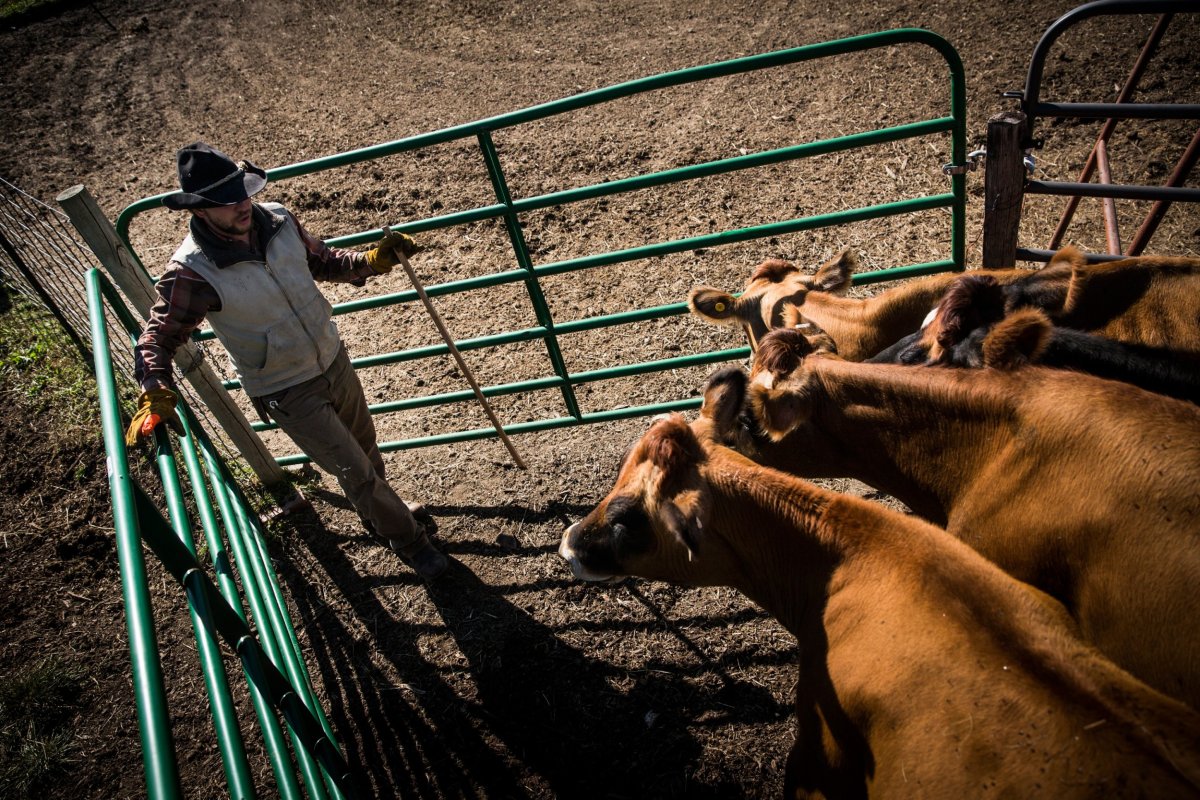This article first appeared on the Cato Institute site.
The federal government owns 640 million acres of land—mainly in the West—which is 28 percent of land in the United States.
For more than a century after the nation's founding, the federal government aimed to sell or give away western lands to individuals, businesses, and state governments.
But by the turn of the 20th century, federal policy came under the sway of progressives, who favored increased federal control.
Progressives had a misguided notion that federal ownership would be efficient and environmentally sound. Broadly speaking, they were wrong.
Experience has shown that federal agencies mismanage land from both economic and environmental perspectives, as discussed here and here. The solution is to devolve ownership of most federal land to the states and private sector.
The Bureau of Land Management (BLM) owns about 250 million acres of land, of which about 160 million acres are used for livestock grazing.
Cato scholar Steve Hanke championed BLM land privatization as an economist for President Ronald Reagan. He proposed that ranchers be allowed to buy the grazing land that they currently rent from the BLM.

Privatization would create benefits by securing property rights. Currently, ranchers are uncertain about their future access to the federal grazing lands they use, so they have incentives to overstock the lands and disincentives to make capital improvements.
Privatization would allow ranchers to plan for the best economic and environmental rangeland management over the long term.
In a new Forbes article, Hanke discusses the privatization proposal he designed in the 1980s, a proposal that Reagan approved of. Hanke's reform would be fair and efficient for both ranchers and the government. Here are some excerpts:
On Jan. 8, Judge Gloria M. Navarro of the Federal District Court in Las Vegas dismissed charges against Cliven Bundy and his sons Ammon and Ryan, as well as a supporter Ryan W. Payne. The case stemmed from a 2014 armed standoff at the Bundy ranch in Bunkerville, Nevada. The standoff arose over a dispute about government grazing fees, pitting the Bundys against federal officials.
The dispute would not have occurred if the proposal I developed for President Reagan when I served as Senior Economist on his Council of Economic Advisers had been implemented. The proposal was contained in the President's Budget Message for 1983 fiscal year.
…Until the passage of the Taylor Grazing Act in 1934, the public domain was operated as a large commons. Since the Act, a more orderly method of utilization has been in effect. For the right to use public grazing lands, which cover approximately 155 million acres, ranchers must acquire grazing permits. To obtain these permits, ranchers must pay annual rents to the U.S. Government. By custom, the grazing permits, which number approximately 24,500, are attached to specific parcels of private land.
The linkage between public permits and private land has had a profound impact on the market for private land. The annual public grazing fees have been set below market-clearing levels.
As a result, the grazing permit market has been cleared—supply has been equated with demand—not through the public grazing permit market itself, but through the market for the private lands that are linked to the public permits.
So, the difference between the public grazing fees that are charged and those that would clear the market for grazing permits has been capitalized into the value of the private lands that permits are attached to.
The linkage, through the capitalization process, between the market for public permits and that for private land has important implications. With the exception of those who obtained the original permits, all ranchers have had to pay two prices for their public permits—a public price, in the form of an annual grazing fee, and a private price, in the form of a premium for their private land.
…To privatize public grazing lands and transfer public grazing permits (surface rights) to private ranchers on an equitable basis, a lump-sum amount should be charged to ranchers.
This charge should be set so that it is equivalent, in present value terms, to the amount that the U.S. government would receive in grazing fees over time if the government retained title to the lands and continued to charge an annual grazing fee or rent.
In effect, the government would be put in a position in which it is indifferent between receiving a lump-sum payment today or a stream of annual rents over time. Moreover, ranchers would be charged for only that portion of the permits' value that had not already been paid for through premiums for private land.
…[W]hat would be the benefits associated with this privatization proposal?
First, the productivity of federal grazing lands would increase.
Second, federal revenues would be generated. Instead of receiving annual grazing fees, the federal government would receive an equivalent lump-sum payment.
Third, the annual federal costs…exceed the annual revenues generated from federal grazing lands. Therefore, privatization would eliminate negative cash flows for the federal government. This would obviously benefit all U.S. taxpayers, who must now pay taxes to support the federal government's retention of public grazing lands.
Lastly, a state and local property tax base would be created. Western dependence on Washington, D.C. would be reduced and federalism would be enhanced.
Chris Edwards is the director of tax policy studies at Cato and the author of Downsizing the Federal Government and coauthor of Global Tax Revolution.
Uncommon Knowledge
Newsweek is committed to challenging conventional wisdom and finding connections in the search for common ground.
Newsweek is committed to challenging conventional wisdom and finding connections in the search for common ground.
About the writer
To read how Newsweek uses AI as a newsroom tool, Click here.








